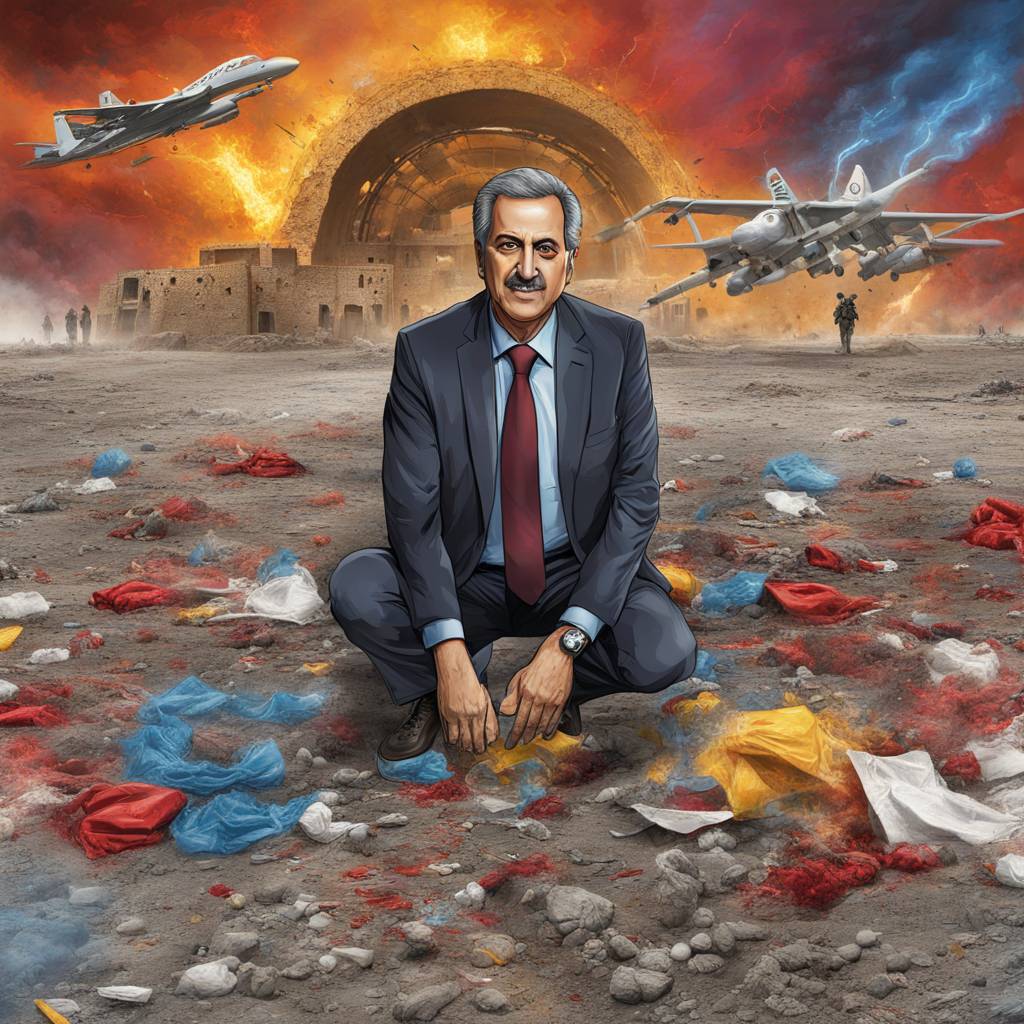A series of airstrikes in eastern Syria on Tuesday resulted in the deaths of more than a dozen people, including an Iranian military adviser and a World Health Organization team member. The strikes targeted various locations in the province of Deir el-Zour, resulting in casualties among Iranian fighters, Iraqi militants, and Syrian civilians. While the British-based Syrian Observatory for Human Rights reported a death toll of 15, Syrian state media indicated that 20 individuals were killed, including women and children. The World Health Organization confirmed the death of one of its staff members, engineer Emad Shehab, who was serving as a focal point for water, sanitation, and hygiene in the region.
Iran’s state news agency verified the death of a member of the Revolutionary Guard in Syria, highlighting the complexity of the conflict in the country. While there was no immediate claim of responsibility for the airstrikes, Israel is known for frequently targeting Iran-linked assets in Syria. In a separate incident in Lebanon, an Israeli airstrike reportedly hit a village in the Hermel region, targeting a military complex used by Hezbollah. The Israeli army’s spokesman mentioned that the strike was in retaliation for Hezbollah’s actions, including firing rockets at an Israeli-controlled base and an Israeli command center in the Golan Heights.
The situation in Syria and Lebanon has been further complicated by these recent airstrikes, leading to an escalation of tensions between conflicting parties in the region. The lack of clarity regarding the perpetrators of the attacks raises concerns about potential consequences and further violence in the area. As the conflict deepens, the United Nations has appealed for $4 billion in aid to address the humanitarian crisis in Syria, underscoring the urgent need for support for vulnerable populations affected by ongoing violence and instability.
The targeting of key individuals, including the Iranian military adviser and the World Health Organization team member, underscores the indiscriminate nature of the violence in Syria and its devastating impact on civilians and humanitarian workers. The involvement of multiple regional actors, such as Iran, Hezbollah, and Israel, highlights the complexity and volatility of the conflict in the area. With no immediate resolution in sight, the international community faces a daunting task in addressing the root causes of the conflict and providing assistance to those affected by the ongoing violence.
The recent airstrikes and retaliatory actions have further heightened tensions between the different factions involved in the conflict, leading to fears of a broader escalation and potential spillover into neighboring countries. The targeting of Hezbollah assets by Israel and Hezbollah’s response by launching rockets at Israeli-controlled territories underscores the cycle of violence and retaliation that characterizes the conflict. This cycle of violence only serves to deepen the suffering of civilians caught in the crossfire and underscores the urgent need for a diplomatic solution to the crisis.
As the situation in Syria and Lebanon continues to deteriorate, the need for a political resolution to the conflict becomes increasingly urgent. The international community must step up efforts to engage all parties involved in the conflict and work towards a sustainable peace agreement that addresses the root causes of the violence. In the meantime, humanitarian organizations like the World Health Organization face escalating risks in providing essential services to vulnerable populations, highlighting the critical need for sustained funding and support for humanitarian efforts in the region.













